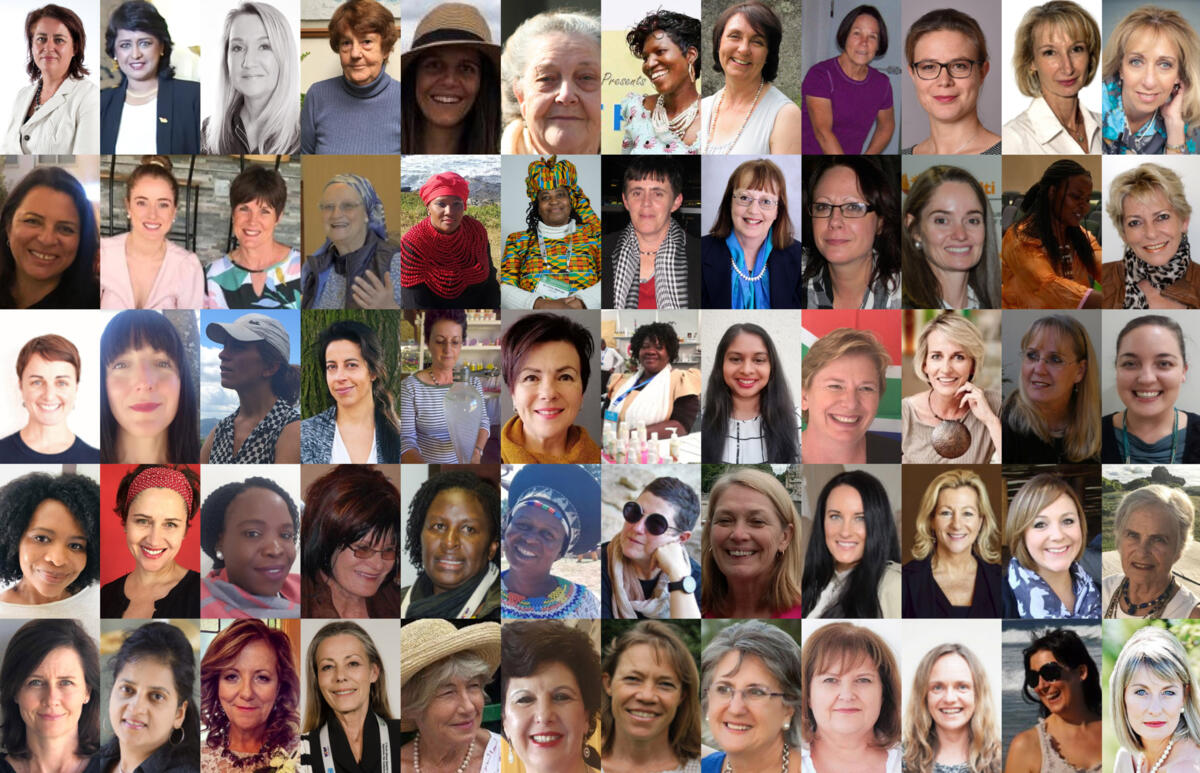CELEBRATING THE ROLE OF WOMEN IN THE NATURAL PRODUCTS INDUSTRY
As part of Women’s Month in South Africa, SIPPO SA, participated in a women-to-women webinar on 11 August 2020 hosted by the BSO, SAEOPA, to celebrate the role of women in the natural products industry.

Women are driving the natural products industry all the way from policy making, planting and harvesting, to processing, value add, sales and marketing.
This was the inspiring message at a women’s month webinar last week, profiling more than 50 women who work with natural products.
“It’s really powerful to see all these women working in the industry,” said Franziska Spörri, Head of Swiss Economic Cooperation and Development (SECO) in South Africa. “It shouldn’t be amazing – because women are capable of anything – but we’re not there yet, so it’s important that we celebrate having such strong role models for the next generation.”
The webinar was hosted by the Southern African Essential Oils Producers’ Association (SAEOPA) in partnership with the leadership of three SECO-funded projects in South Africa: the Global Quality and Standards Programme (GQSP-SA/UNIDO), the ABS complaint Bio-trade in Southern Africa project (ABioSA) and the Swiss Import Promotion Programme (SIPPO).
“It’s not by design, but by coincidence, that all the projects are led by women, and it shows us what is possible,” added Spörri.
“We wanted to revel in the achievements of women in the natural products industry, added Elsie Meintjies, chief technical advisor of the GQSP-SA/UNIDO. “It was so powerful to see profile after profile of women during the webinar.”
And it’s not just in management that women drive this fast-growing sector. “Women are involved at all levels, from planting to distillation to production,” said Karen Swanepoel, executive director at SAEOPA. “While 78% of companies in the industry are owned by women, we make up 68% of the total natural products workforce. That number is as high as 80% in rural areas.”
Among them, the women profiled during the event turn more than 40 natural ingredients into personal care products, food and beverage items, medicine, and other cosmetics.
The industry has seen tremendous growth in recent years. Globally, the natural products sector is projected to be worth more than R430 million by 2025. Essential oil exports alone grew by 14.3% between 2017 and 2018, and trade in essential oils represent 0.034% of total world trade.
“The role of women in international trade is important,” said Anna Reyneke, SIPPO’s country representative in South Africa. “It’s so encouraging to see an increase in women-owned and led business at international trade fairs. Women own close to 10 million of the world’s small and medium enterprises, and interestingly, in developing countries, exporters employ more women than non-exporting companies.”
Reyneke added that there has been increased demand for natural ingredients for cosmetics in Europe and elsewhere.
“In particular, indigenous natural ingredients from Africa are being used more and more in natural health products in Europe. This links to trends in consumer behaviour towards a healthier lifestyle, which is also creating opportunities for natural ingredients.”
ABioSA’s senior technical advisor, Adrie El Mohamadi, believes the sector has been proactively driven specifically by women, a consequence of traditional gender roles evolving into entrepreneurial ventures. “You could almost say the industry was made for women, by women. Many women hold valuable ancestral knowledge of plants, for use in medicine and cosmetics, and so it’s no surprise we see women blossoming in the natural products industry.”
Meintjies echoed that women have not just been part of, but have actively driven the growth of the sector:
“Women took the lead in natural products. We were not left behind, and we must continue to be proactive, encouraging young women to enter the industry for the betterment of society, and the economy.”
The fast-changing world, driven both by the digital revolution and the growing informality of labour, presents both challenges and opportunities for women working with natural products. While the global COVID-19 pandemic has put pressure on the industry, the resulting increased interest in e-commerce may be an opportunity for many women, especially those in rural areas.



 Bosnia and Herzegovina
Bosnia and Herzegovina











